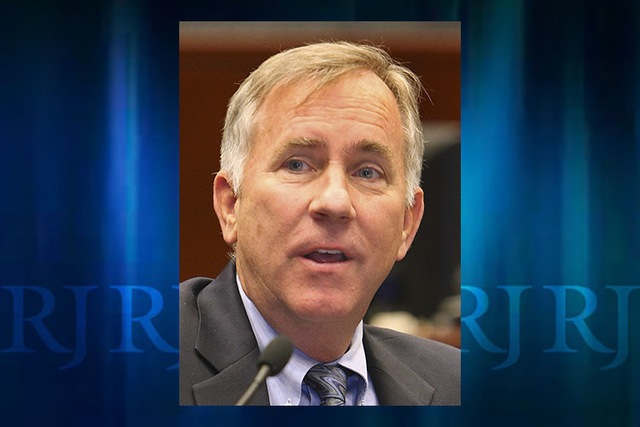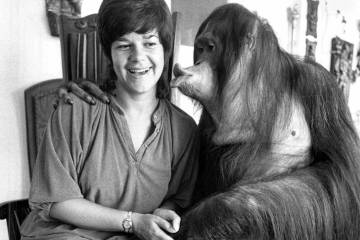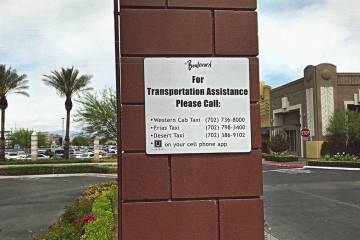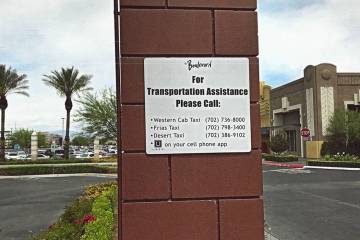Appeals court cautions federal judge to get in line
By now, U.S. District Judge Robert Clive Jones should be accustomed to being overturned by the 9th Circuit U.S. Court of Appeals.
His rejection of same-sex marriage in Nevada in 2012 was overturned. So was his effort to pull “None of These Candidates” off Nevada’s ballots the same year.
On June 29, the Reno-based judge received a double whammy. In two unrelated cases, his actions on the bench were knocked down by the appeals court. In each situation, Jones essentially was told to stop marching to his own drummer.
First, he was told to stop barring out-of-state U.S. attorneys from appearing before him, which he has a pattern of doing. Then he was told he has no business injecting himself into a plea bargain negotiation, which was a clear no-no.
In the first case, he was chastised for his recurring policy of not allowing out-of-state U.S. attorneys from practicing before him unless Nevada U.S. Attorney Dan Bogden could show his staff was “incapable” of handling the case.
So the federal government sued the court, even though Jones had reversed himself after the government attorneys objected when he refused to let an out-of-state federal attorney practice in a 10-year-old case — U.S. v. the Walker River Irrigation District.
Jones had refused to allow out-of-state government attorneys to practice before him at least five other times and was likely to do it again, federal attorneys argued. They wanted the higher court to put a stop to Jones’ unusual policy.
The appellate court decided it was appropriate to “offer guidance” to Jones.
Without providing specifics, Jones had said he adopted his policy because he had doubts about “the ethical commitments” of government attorneys. The appeals court said by failing to provide valid reasons to prevent out-of-state federal attorneys from practicing in his court, he “acted outside his discretion.”
Plus, the judges said, “some of Judge Jones’s comments risked giving the impression that his admission policy was motivated by his disagreement with the enforcement priorities of specific federal agencies.”
My take: If Jones has a specific problem with a specific attorney, then he should use his judicial powers and have at it. If not, he shouldn’t be playing games.
The second smackdown of the day was in a criminal case in which Jones injected himself into plea bargain negotiations between the prosecution and defense, a clear case of overreaching. That’s not his job. He can accept a plea bargain or reject it. He can’t jump into plea negotiations.
This opinion was odd in that it never used Jones’ name. You could only spy it was his case by the letters identifying the case. His name is not mentioned in the written discussion. It was almost like the three-judge panel, which included Nevada Judge Jay Bybee, wanted to conceal Jones’ name.
Now why would they do that?
Marcilin Anne Benvin, president of Cetus Mortgage in Reno, was charged in a 50-count fraud indictment in 2011. Under the plea bargain, she would plead guilty to one count of embezzlement and theft from an employee pension plan and pay restitution of $260,000. But she also filed for bankruptcy, and that court found she owed $3 million in nondischargable debt to creditors. The attorneys said that judgment would be difficult to collect.
Jones, a former bankruptcy judge, said under the plea bargain that only one pension fund could get anything back in restitution. He wanted the plea bargain to include the $3 million, so others would get paid. He told the attorneys to change the plea agreement, which he saw as unfair.
He described it as a suggestion, but his own words showed it was a very strong suggestion. “I am not going to let them enter into a plea agreement with the defendant on these terms,” Jones said.
Benvin’s federal public defender appealed to the circuit court, which agreed Jones violated rules on judicial involvement in plea discussions. The court ordered the case reassigned to another judge.
In both cases, Jones seemed to do exactly as he thought was best, probably knowing he was legally wrong. He did not return a call seeking comment.
In the “None of These Candidates” case he was blasted for playing politics by delaying action on the case over whether that option should stay or go. Republicans wanted the protest vote to go, believing it drained votes from GOP candidates such as presidential contender Mitt Romney.
In that case, Jones was castigated in an opinion that said he deliberately delayed the case knowing his ruling “None” was unconstitutional would be overturned on appeal and hoping it would be moot by the time he was overturned. “Such arrogance and assumption of power by one individual is not acceptable in our judicial system,” the opinion stated.
Jones seemed to have problems with former Attorney General Eric Holder.
In a case involving the Bureau of Land Management, Jones said Bogden “serves under an Attorney General who, under the guise of prosecutorial discretion, selectively enforces laws to further political objectives that ought to be left to the legislature. There is simply no presumption that his subordinates are above ethical reproach.”
The appellate court said because Jones didn’t cite a reason for not allowing a federal attorney to practice, “comments like these create a real risk that the policy would, rightly or wrongly, be viewed as an encroachment on the domain of the political branches.”
Jones seems to be guided by his personal beliefs instead of the law. He was nominated by President George W. Bush in December 2003 and is an active member of the Church of Jesus Christ of Latter-day Saints.
It’s no secret that some federal judges play politics and because of their lifetime appointments don’t care how many times they are called out on it.
You need to know who they are, even if there’s little you can do about it.
The appellate court, however, can do plenty.
Jane Ann Morrison’s column appears Thursdays. Email her at jmorrison@reviewjournal.com or leave a message at 702-383-0275. Follow @janeannmorrison on Twitter.






















